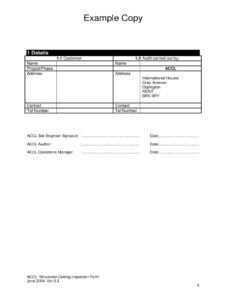A corporate email usage policy template is a document that outlines the rules and guidelines for employees to use their company’s email system. This policy helps to protect the company’s network and data from unauthorized access, ensures that employees are using email in a professional and responsible manner, and minimizes the risk of legal liability.
An effective corporate email usage policy should address a range of topics, including:
- Permitted and prohibited uses of email
- Email etiquette and professionalism
- Security measures to protect company data
- Consequences for violating the policy
Email Usage and Acceptable Use
In this section, you should define the permitted and prohibited uses of email. For example, you may want to state that employees are only allowed to use email for business purposes and that they are not allowed to send personal emails or engage in personal web browsing during work hours. You should also include a list of prohibited activities, such as sending spam, phishing emails, or accessing inappropriate websites.
Here are some additional things to consider including in this section:
- A statement that the company reserves the right to monitor email usage
- A requirement for employees to use strong passwords and to change them regularly
- A reminder that employees are responsible for the security of their own email accounts
Confidentiality and Data Protection
In this section, you should outline the company’s policies on confidentiality and data protection. You should state that employees are required to keep all company information confidential and that they are not allowed to share it with unauthorized individuals. You should also include a statement that the company has the right to access and inspect email accounts for security and audit purposes.
Here are some additional things to consider including in this section:
- A definition of what constitutes confidential information
- A list of the types of data that employees are not allowed to share
- A statement that employees are required to report any suspected security breaches
Consequences for Violating the Policy
In this section, you should outline the consequences for violating the email usage policy. These consequences may vary depending on the severity of the violation. For example, you may want to state that employees who send spam emails will be subject to disciplinary action, up to and including termination of employment. You should also include a statement that the company reserves the right to take legal action against employees who violate the policy.
Conclusion
A corporate email usage policy is an important document that can help to protect the company’s network and data, ensure that employees are using email in a professional and responsible manner, and minimize the risk of legal liability. By following these tips, you can create an effective corporate email usage policy that will help to keep your company’s email system secure and productive.
It is important to review and update your corporate email usage policy on a regular basis to ensure that it is still relevant and effective. You should also provide training to employees on the policy so that they are aware of their responsibilities and the consequences for violating the policy.
FAQ
What is a corporate email usage policy?
A corporate email usage policy is a document that outlines the rules and guidelines for employees to use their company’s email system.
Why is a corporate email usage policy important?
A corporate email usage policy is important because it helps to protect the company’s network and data, ensure that employees are using email in a professional and responsible manner, and minimize the risk of legal liability.
What should a corporate email usage policy include?
A corporate email usage policy should include the following topics: permitted and prohibited uses of email, email etiquette and professionalism, security measures to protect company data, and consequences for violating the policy.
